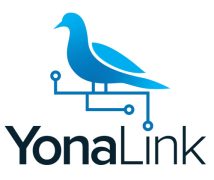How a new investment is powering a revolution in clinical trial operations

Clinical trials are the engine for pharmaceutical innovation, but their means of capturing and communicating data are stuck in the past. Recognising an opportunity to develop better tools for clinical trial leaders to share and stream data, YonaLink’s co-founders built a software solution that addresses the interoperability gap in clinical trial operations. Iddo Peleg (CEO, and one of the four co-founders of YonaLink) and Gav Martell (co-founder and vice president of business development) discussed how a recent $6 million funding round led by Debiopharm Innovation Fund will support their mission to transform clinical trials and bring lifesaving therapies to market faster.
While many pieces of the drug development process have digitised to keep pace with the speed of technological advancements, clinical trials continue to lag amidst pharma’s digital transformation. According to Peleg, one of the biggest inefficiencies is in the process of collecting and streaming data from participants at trial sites to the trial organisers.
Today, Peleg explains, much of this process remains manual. Trial sites monitor patients participating in a research programme and enter their data into an electronic health record (EHR) for storage before transferring it to the trial’s electronic data capture (EDC) system. In most cases, the EHRs and EDCs don’t communicate, so in order to share that data with trial organisers, staff members at medical centres must manually copy data between the EHR and an EDC. As an average Phase 3 trial amasses over 3.6 million data points, typing each piece of information into the EDC can take months, Martell says, and inevitable data entry mistakes caused by human error can further delay trial progress.
“The clinical trial market is critical – not only does it bring essential therapies to the marketplace, but it offers lifesaving treatments to people who need them,” Martell explains. Unfortunately, he continued, “the clinical trial industry is stuck in the financial equivalent of writing cheques to people and taking your cheque book to the bank to update your balance.”
YonaLink – co-founded by Peleg and Martell along with chief operations officer Itai Rechnitz and Gil Meir, chief technology officer – offers a technology system to simplify the process of clinical data collection. In doing away with analogue workstreams, the company aims to improve the speed, quality, and interoperability of clinical trials. This unlocks opportunities for more trial sites and patients to participate in research – and speeds the research process to get critical treatments in the hands of patients sooner.
“Accurate data streaming is the key to bringing therapies to market faster than ever before,” Peleg says.
The problem with clinical trials
“There are lots of inefficiencies in clinical trials,” Peleg explains, “but the biggest gap is in how we collect data from medical centres and transfer it to the EDC.”
This represents a large area of lacking interoperability – the ability for technology systems to “talk” to one another to streamline data transfers. “It’s not a secret,” Martell says, “everyone in the industry knows it’s a problem. The opportunity to find solutions to bridge interoperability challenges is massive.”
Peleg shares that an average of six to eight weeks pass between the moment data is captured in an EHR during a clinical trial and when it’s transferred to the EDC for analysis. In addition, up to 45% of clinical trial budget is dedicated to manual data capture – which includes compensating study coordinators, engaging with contract research organisations (CROs), and accommodating queries and potential in-person visits from regulators as they review and validate the data.
“When I told our investors about these costs, timelines, and workflows, they thought I was joking,” Peleg says. “There’s no other industry where we capture data in this way. We’re trying to register lifesaving therapies, but we have to collect the data manually, and often the FDA and EMA inspectors have to visit trial sites to validate the data. It’s simply a waste of resources.”
Challenges with data collection don’t only pose business problems, but societal and health equity ones, too.
“When it’s so expensive to collect data, only big hospitals and medical centres participate in clinical trials. Only 5% of cancer patients have access to clinical trials. This means that outside of big cities and large medical centres, there are no clinical trials,” Peleg says.
“The global pandemic drove home how important it is to solve this problem on a global level; you have to be able to run clinical trials on a diverse population very rapidly, and the old methodology isn’t working,” Martell adds.
The only way to bridge this gap, Peleg says, is with technology.
Solving interoperability challenges with real-time data and technology
The ability to stream data seamlessly between clinical trial sites and sponsors opens up new opportunities for better trial operations, improved access to research, and faster time to insight. YonaLink’s technology, Martell explains, offers a scalable way to bridge data gaps on a global level.
“On many different levels, we enable easy integration and connection to solve interoperability problems,” Martell says.
For clinical trial managers, Peleg explains, it’s important to access data in real time. As healthcare happens rapidly and continuously, a six-to-eight-week lag in data transferring hinders trial runners from understanding what’s really happening in their study. “Live data is critical for patient safety and for good operations in clinical trials,” Peleg says. “It makes everything more efficient and more accurate.”
Peleg explains how YonaLink’s process enables data streaming in hours rather than weeks and reduces costs tenfold – from thousands of dollars to a few hundred per trial.
“When data can be streamed, and when it’s not expensive to get the data, you can get real-time insight into what’s happening at all trial sites,” Peleg says. “This enables even small hospitals to participate in clinical trials,” thereby allowing patients who may not live near large academic medical centres to enrol in studies.
This represents a significant step toward health equity, with technology enabling the same types of accessibility improvements that we’ve seen benefit other industries. Peleg offers an example from the banking industry: “When you can wire money anywhere in the world, you can do business anywhere in the world. Similarly, when you can stream data, you can make clinical trials accessible to patients anywhere.”
Martell also details the ways data streaming technology can improve workflows for healthcare staff. “Not only are you minimising mistakes, you’re creating happier staff who can now easily manage multiple studies at a time,” Martell says. “This reduces the burden on a health industry that’s already dealing with staffing issues, all while making the lives of staff members easier.”
The multi-layered impact of YonaLink’s work inspires Peleg and Martell to continue to transform clinical trials with their technology and partnerships with pharmaceutical leaders.
“It’s not just about the business impact,” Peleg continues, “it’s about the societal impact, too.”
Leveraging funding to build better clinical trials for the future
With the infusion of capital from Debiopharm Innovation Fund – as well as eHealth Ventures and the European Union, who also participated in the round – YonaLink aims to expand its impact to support more clinical trials around the world. Peleg explains that the company currently focuses on Israel, the United States, and Spain, but will use the funding to expand its network to more clinical trials in more countries. “We want to be seen as a clinical trial hub for any country,” Peleg says.
He calls out a particular opportunity in the United Kingdom, where COVID-19 and other factors have reduced patient access to clinical trials by 44% since 2017.
“The question to ask ourselves is how we can increase patient participation in clinical trials,” Peleg says. “If all medical centres are connected and can stream data, we can build an infrastructure that makes it more attractive to run clinical trials.”
The YonaLink team looks forward to continued collaboration with Debiopharm in the years to come as they grow their collective impact.
“Debiopharm is an amazing company, and it’s exactly the right size to support YonaLink,” Peleg says. “We have direct access to clinical operations, data management, and data science experts who can support us through all the processes to become a global leader in clinical trials.”
Looking ahead: A changing clinical trials landscape
Peleg expects that in the next five years, EHR to EDC linkage and data streaming will be the gold standard for clinical trials.
“When I first started working in clinical trials, people were just moving from paper documentation to EDCs,” Peleg says. “Within a few years, I think no one will want to copy data anymore, they’ll move to streaming.”
Both Peleg and Martell are inspired by the work ahead to transform clinical trials.
“It’s so obvious that this revolution needs to happen, and we feel privileged to be leading in the revolution,” Peleg says.
“We’re helping foster clinical trials into a world where there’s more patient access to clinical trials, and lifesaving therapies can come to market faster,” Martell says. “We’re so excited to be part of this change.”
About the interviewees

Iddo Peleg has been immersed in clinical trials for the past two decades in pharma and CROs. His passion for the industry has led him on a mission to solve the largest unmet need in clinical trials – bridging the data gap between patient care and clinical research.

Gav Martell has been bringing enterprise software solutions to market for the past 25 years. His career has spanned development, QA, product and project management, operations, business development and all points in between. He sees a lot of similarities in his work life and his passion as a chef; simplify problems, solve them, and create something amazing.
About YonaLink

YonaLink equips research teams with the ability to extract up-to-date patient data from an EHR and stream that data into a clinical trial electronic data capture (EDC) system in real time, reducing clinical trial timelines and costs. Headquartered in Boston with R&D operations in Israel, YonaLink is bringing new levels of speed, quality, and efficiency to clinical trial operations across the globe, simplifying the complexity of clinical data collection and validation, and enabling true scalability. The Company’s SaaS platform has the capabilities to stream up-to-date data from any clinical site’s EHR platform, in any part of the world, and populate it within YonaLink’s next generation EDC or other data capture systems. With built-in eConsent and ePRO / eCOA and streaming EHR-to-EDC capabilities, YonaLink’s next generation EDC provides a comprehensive solution for today’s clinical trial needs, bringing EDC and eSource functionality together in a single tool that can be set up within minutes, eliminating integration delays, reducing costs, and accelerating study timelines. Learn more at www.yonalink.com.
About Debiopharm Innovation Fund

Debiopharm Innovation Fund, the strategic investment arm of Swiss biopharmaceutical company Debiopharm, provides strategic funding and guidance for companies with an ambition to improve the patient journey and re-imagine how clinical trials are conducted, along with companies offering digital platforms that support cutting-edge drug technologies. Since 2017 Debiopharm has invested in 14 digital health companies, typically leading the investment rounds.
For more information, please visit www.debiopharm.com/digital-health/ or follow @DebiopharmFund on Twitter.













